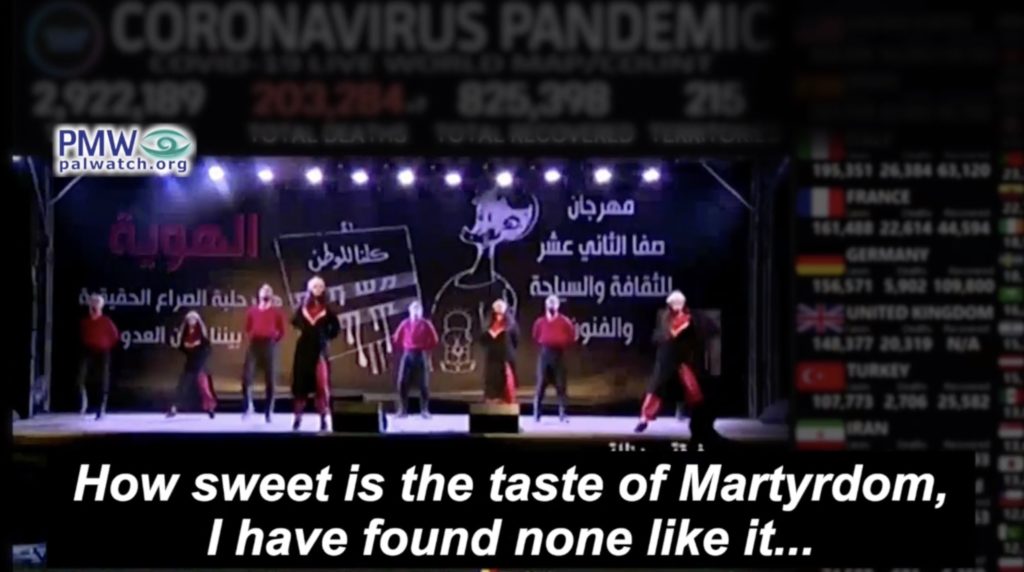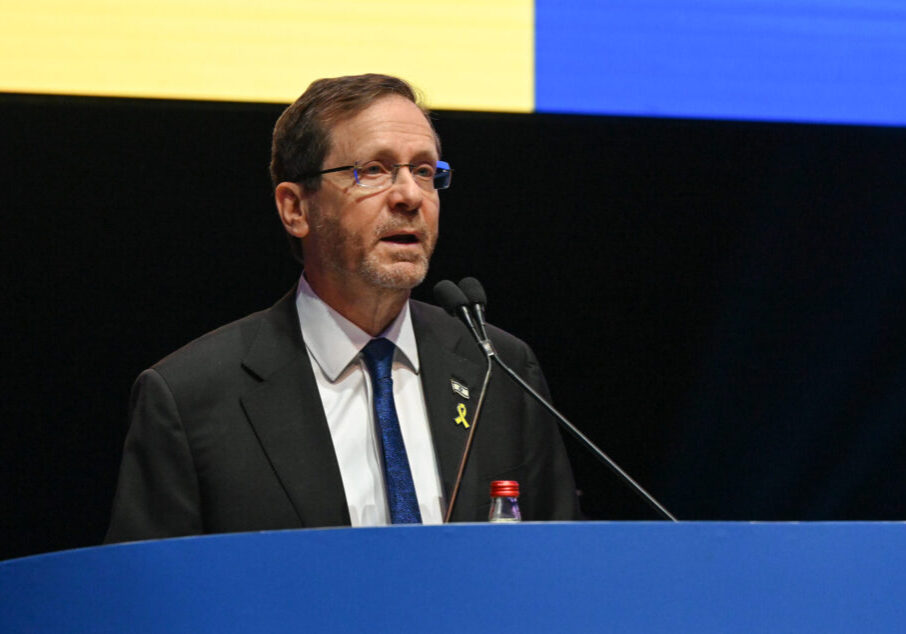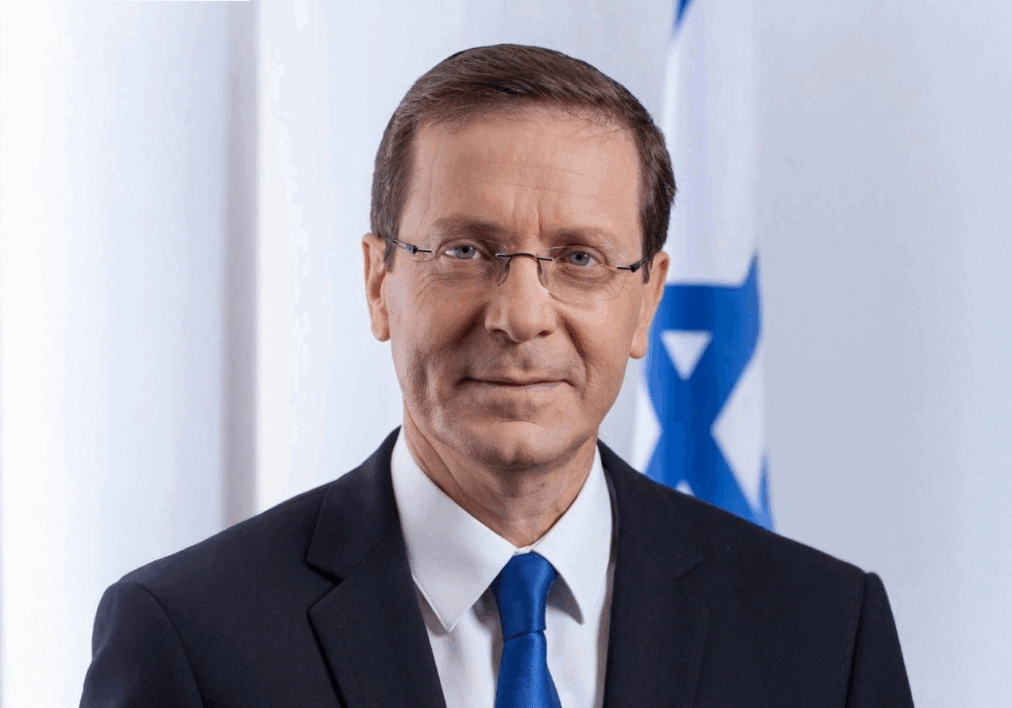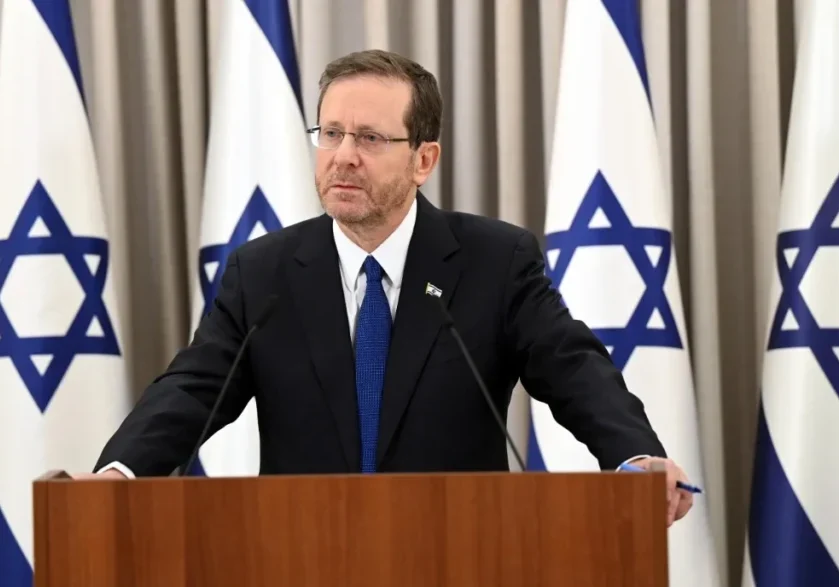Australia/Israel Review
Scribblings: PA promotes suicide bombing Israeli cities
Jun 1, 2020 | Tzvi Fleischer

Hopefully most readers know that there is a serious problem with incitement to violence and antisemitic hatred in the official media of the supposedly moderate Palestinian Authority (PA). However, some may be under the mistaken impression that open support for suicide bombing is an Islamist thing, more associated with Hamas.
Palestinian Media Watch has documented that, in recent weeks, official PA TV has repeatedly broadcast a song and dance which is basically an open call to carry out suicide bombing in Israeli cities. The words of the song include:
“Strap on the explosive belt,
Detonate the first in Haifa and the second in Atlit (i.e., Israeli cities)…
Strap on the belt, O daughter of my land,
and detonate it in front of the enemies.
How sweet is the taste of Martyrdom,
I have found none like it”
The song goes on to praise Wafa Idris and Ayyat Al-Akhras, two female suicide bombers, saying of them:
“You have lifted our heads to the heavens
Our public is now following you
by the thousands”
Meanwhile, for Prisoners’ Day, official PA TV in mid-April broadcast two short clips saluting specific Palestinian prisoners, virtually all of who had murdered Israelis. One clip labelled the prisoners listed as “The Giants of Palestinian History” and then flashed photos of 31 prisoners, at least 30 of whom committed murders. Another similar filler listed “27 leaders have given more than 25 years of their lives in the prisons of injustice”. At least 26 of those “leaders” were murderers.
Further, a story in the official PA daily newspaper, Al-Hayat Al-Jadida, published on April 20, profiled and paid tribute to 12 Israeli Arab citizens in Israeli prisons. All of them also were involved in murders, but that is actually not the most troubling part of the story. The story referred to the 12 as “prisoners from the towns and cities of the Interior (i.e., a Palestinian term for pre-1967 Israel) who are still drawing the map of greater Palestine.”
In other words, the story not only held up murderers as Palestinian role models, but took for granted that the Palestinian goal was to replace Israel with a “greater Palestine” incorporating all its territories.
It is generally agreed by those with reason to know that PA President Mahmoud Abbas is not in favour of terrorism, unlike his predecessor Yasser Arafat, viewing it as counterproductive. Yet the authority he heads pays generous salaries and pensions to terrorist prisoners and the families of those killed carrying out terrorism, thus effectively incentivising it. Furthermore, the PA’s official, tightly-controlled media broadcasts open calls for suicide bombings, holds up terrorist murderers as role models, and talks about destroying Israel to create “greater Palestine”.
Is it any wonder that the Trump Administration’s peace plan demands reforms to the PA that include an end to such incitement before a new Palestinian state is formed?
Lack of Moderation
Last month in this column, I noted the Holocaust denial and other general antisemitism which remains pervasive in the Iranian regime – with some of it emanating directly from Supreme Leader Ayatollah Ali Khamenei.
Khamenei has recently been at it again, releasing a poster that promotes a “Final Solution” for Palestine – it said “Palestine will be free. The final solution. Resistance until referendum.”
But many seem to shrug off such behaviour by insisting the only way to deal with Iran’s rogue actions is to engage respectfully with Teheran to strengthen the “moderate” elements of the regime against the hardliners.
And the moderate elements of the regime they mean are typically epitomised by current Iranian President Hassan Rouhani.
But many experts in Iranian politics note that Rouhani is relatively powerless, that an Iranian President has limited authority and can only do what the Supreme Leader chooses to allow him to do.
It is not only outside experts who say this – so do the most knowledgeable dissidents inside Iran. Top American reporter Dexter Filkins was recently allowed to visit Iran and published a blockbuster report on what is going on there in the New Yorker, titled “The Twilight of the Iranian Revolution,” on May 18.
In it, he notes that in 2018, regime figures were openly talking about marginalising Rouhani, and prosecutors linked to the powerful Islamic Revolutionary Guard Corps (IRGC) were launching investigations into many people close to him as a way to control him. According to Masoud Bastani, a dissident Iranian journalist whose reporting has landed him in prison three times, there were plans by the IRGC to strip Rouhani of his power last year, and Filkins reports other sources saying this involved arresting “roughly a hundred people close to the President.”
But it is not clear that, even if Rouhani were much more powerful in the face of groups like the IRGC than he actually is, it would make any difference. Faezeh Rafsanjani, a dissident former member of parliament and the daughter of the late President and key regime powerbroker Akbar Hashemi Rafsanjani, said this to Filkins about Rouhani; “I had hopes for him, but he’s the same color as the rest of them.” She also said, “Even the people who say they are reformers are not really reformers at all.”
Meanwhile, Rouhani certainly partakes of some of the same paranoid worldview that characterises the rest of the regime. He recently claimed that the current coronavirus pandemic involved a “foreign media’s conspiracy” that “wanted to shut down the country and disrupt its security.” In April, he said that the Ministry of Intelligence has “detailed documents” about a “counter-revolutionary conspiracy” behind the coronavirus crisis.
Tags: Iran, Israel, Palestinian Authority, Palestinians, Terrorism






